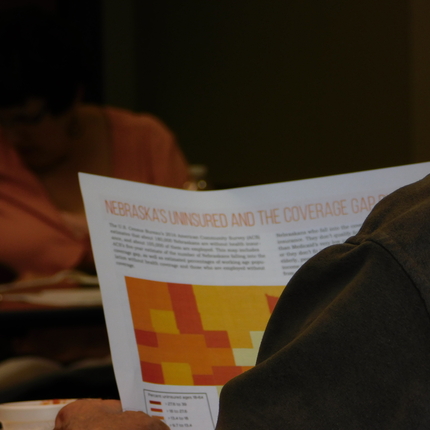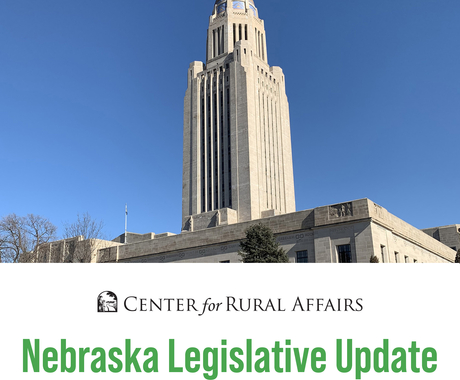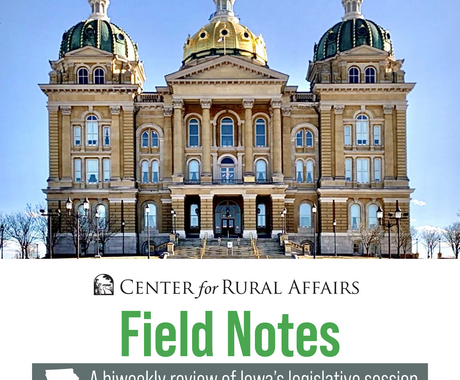Judy Sandeen wasn’t planning on testifying when she walked into the Kearney Public Library last fall for the second of four public hearings on the implementation of Medicaid expansion in Nebraska.
But, as she signed in, the Hastings, Nebraska, resident, thought about her friend, Todd Ruhter.
“I thought ‘well, why not?’ because this was a huge thing that happened with Todd,” Judy said.
Todd had long fought for the Medicaid expansion, often traveling from Grand Island to Lincoln to speak with Nebraska lawmakers, despite being very ill.
As she listened to others testify and have “really important things to say,” Judy noticed they weren’t offering the personal stories she believed officials with the Nebraska Department of Health and Human Services (DHHS), the agency responsible for implementation of the program, needed to hear.
So, she began jotting down notes about the man who grew up on a ranch near Grand Island, with whom she struck up a friendship as they advocated for a number of issues, including those surrounding health care.
“I thought there needed to be a face, an individual, someone who lost his life because this (expansion) hadn’t happened,” Judy said.
Todd, who died in April 2015, was among Nebraskans who fell into the coverage gap when it came to health insurance—they earn more than Medicaid’s income threshold but not enough to qualify for subsidies from the insurance marketplace.
After years of debate, with 53 percent of voters approving, a ballot initiative to expand Medicaid was approved in November 2018. While passage came too late for Todd, Judy and other supporters were happy voters saw the need.
But, that happiness has abated as the state’s plan, unveiled early last year, included not what voters had thought would be a fall 2019 start date, rather a 2020 implementation. Also part of the plan was a complex waiver process which would tier benefits and make other changes to Medicaid.
“The whole foot-dragging is so frustrating,” Judy said. “There are still real people suffering because of the slow-walking that is happening.”
A health care professional for 56 years, Judy has seen the impact of the lack of insurance of all kinds, not just Medicaid.
“It’s just been heartbreaking to see people not have proper and appropriate care because they didn’t have the proper resources for it,” she said.
The next phase of the Medicaid expansion process includes a federal comment period. As Judy did, the Center for Rural Affairs encourages residents to let their voices be heard by submitting a comment. Comments can be submitted here until 11 p.m., Jan. 17.
The comment period comes as the result of an application submitted by the Nebraska DHHS, Division of Medicaid and Long Term Care, on Dec. 12.
In its application, DHHS officials submitted a section 1115(a) demonstration application proposing to implement a two-tiered benefit package for its new adult group. Despite opposition voiced by hundreds of Nebraskans during the hearings, only minor changes were made.
On Jan. 2, the Center submitted its own comments.
“Health care access and its radiating economic consequences has a direct impact upon the well-being of rural residents and communities,” said Jordan Rasmussen, policy manager.
Rasmussen addressed the need to uphold the will of the voters, to make sure access to vision, dental and over-the-counter drug benefits remains and rural Nebraska’s stake in Medicaid expansion.
“While expansion does not offer the solution to all of the challenges of rural health care delivery, the expedient and unencumbered implementation of Medicaid expansion will make a difference for thousands of rural residents and the communities they call home,” Rasmussen wrote. “It is time to move forward with the will of voters and implement Medicaid expansion without barriers.”
Click below to read the full text of the Center’s letter.
Statement on Nebraska Medicaid Expansion 1115 Waiver
January 2, 2020
Centers for Medicare and Medicaid
ATTN: HHA Waiver
7500 Security Blvd Baltimore, MD 21244
Attn: Nebraska Medicaid Expansion 1115 Waiver
Re: Center for Rural Affairs Statement
To whom it may concern:
The Center for Rural Affairs is a private nonprofit organization, established in 1973 and based in Lyons, Nebraska. The Center works to promote social and economic justice, environmental stewardship and strengthen rural communities. A significant part of this work is engaging with people about the decisions that affect the future of their communities and the quality of their lives. Health care access and its radiating economic consequences has a direct impact upon the well-being of rural residents and communities.
I. Upholding the will of the voters
Last year, voters in our state accomplished what the Legislature could not—the expansion of Medicaid coverage for 90,000 Nebraskans who earned too little to qualify for subsidies to purchase coverage from the insurance marketplace and too much to qualify for Medicaid. With this vote, Nebraskans from across the state recognized the importance of access to health insurance coverage for their neighbors. Yet, almost a year later, these neighbors still have another year to wait until they will be able to access coverage, due to the state’s unnecessarily drawn out implementation timeline and proposed waiver.
Moreover, under the proposed 1115 waiver, these Nebraskans and an estimated 25,000 additional residents currently enrolled in Medicaid stand to lose access to vision, dental and over-the-counter drug benefits. These ancillary benefits are crucial to improving and achieving overall health outcomes. Nebraskans certainly did not vote for these barriers and delays in coverage.
II. Dental care as a first line of defense
Dental health is essential to overall health. Affecting not only physical but mental and emotional wellbeing, oral health is a critical and complex issue that spans beyond straight teeth and a white smile. While many oral conditions are preventable and treatable if diagnosed early, thousands of Nebraskans are unable to access regular dental care.
Dental conditions, like periodontitis, or the infection and inflammation of the gums, have been identified as indicators for a number of chronic diseases including: cardiovascular disease, stroke, diabetes and Alzheimer’s Disease. The Nebraska Department of Health and Human Services’ 2016 Health Assessment found that the mortality rates for heart disease and stroke were greatest in the state’s rural counties.
The report also finds that residents of urban counties are 12 percent more likely to have seen a dentist than rural residents. Without adequate oral hygiene, awareness of dental health issues, or regular visits to a dentist, individuals may disregard warning signs, allowing underlying conditions to advance into more costly chronic illnesses.
III. The economics of dental care coverage
Data from the Bureau of Labor Statistics Consumer Expenditure Surveys found that Americans spent $36.8 billion on dental services in 2016, $600 million more than was spent on physician and clinical services that year. This equates to an annual per person expense for dental care of $696. Of these personal dental expenses incurred, 44 percent were paid out-of-pocket, 43 percent by private dental insurance and just over 8 percent paid by public coverage, such as Medicaid. For rural residents, these costs for dental services can present a significant barrier to care.
In Nebraska, cost undoubtedly inhibits residents from visiting the dentist. The American Dental Association found 54 percent of Nebraskans who had not visited their dentist in the past 12 months did not go because they could not afford the costs associated with care. Unsurprisingly, this percentage is significantly higher for low-income households, 74 percent of which said cost prevented them from seeking care. For high-income households, this percentage shrinks to 1 percent.
When Nebraskans cannot access the dental care they need through planned visits to the dentist’s office, they go to our emergency rooms. Between 2003 and 2015, the number of non-traumatic dental visits to the emergency room nearly doubled from 4,829 to 8,213, with a price tag of nearly $10 million. Of these emergency room dental visits, more than 2,800 were made by rural residents. Creating additional barriers to dental health care coverage for current and expansion Medicaid clients through the proposed 1115 waiver will only exacerbate the utilization of emergency services for dental care.
IV. Rural Nebraska’s stake in Medicaid expansion
Nebraskans in the state’s rural counties have much to gain with the state’s expansion of Medicaid coverage. Of the state’s residents that are estimated to be in the Medicaid coverage gap, nearly 36 percent live in rural counties. These uninsured residents account for nearly 4.24 percent of the total rural population.
This greater percentage of uninsured in rural counties matters not only because of the number of rural Nebraskans who are left uninsured, but also for those in their communities who are left to shoulder higher insurance premiums and the radiating effects of uncompensated care on health care systems.
V. Conclusion
While expansion does not offer the solution to all of the challenges of rural health care delivery the expedient and unencumbered implementation of Medicaid expansion will make a difference for thousands of rural residents and the communities they call home. It is time to move forward with the will of voters and implement Medicaid expansion without barriers.




